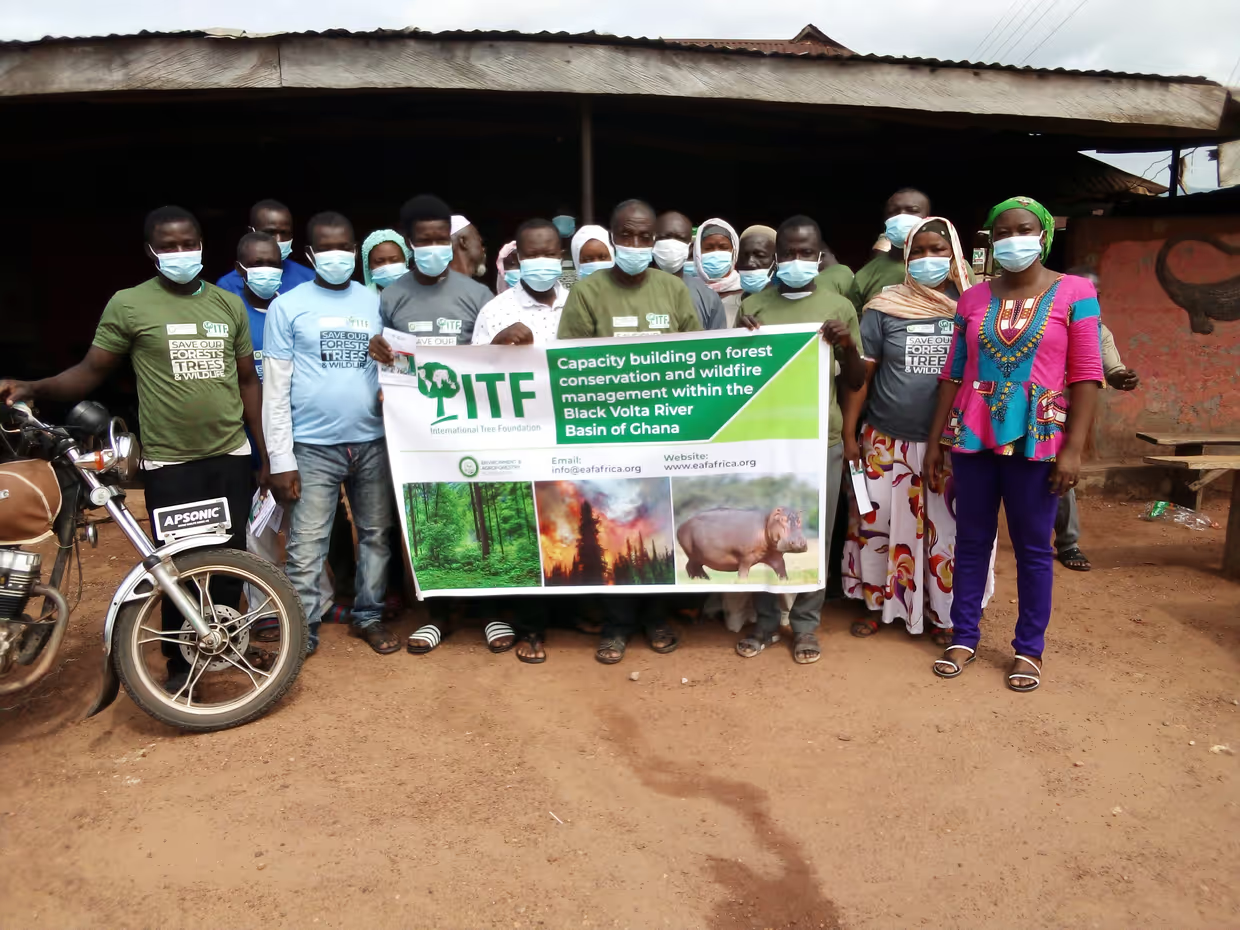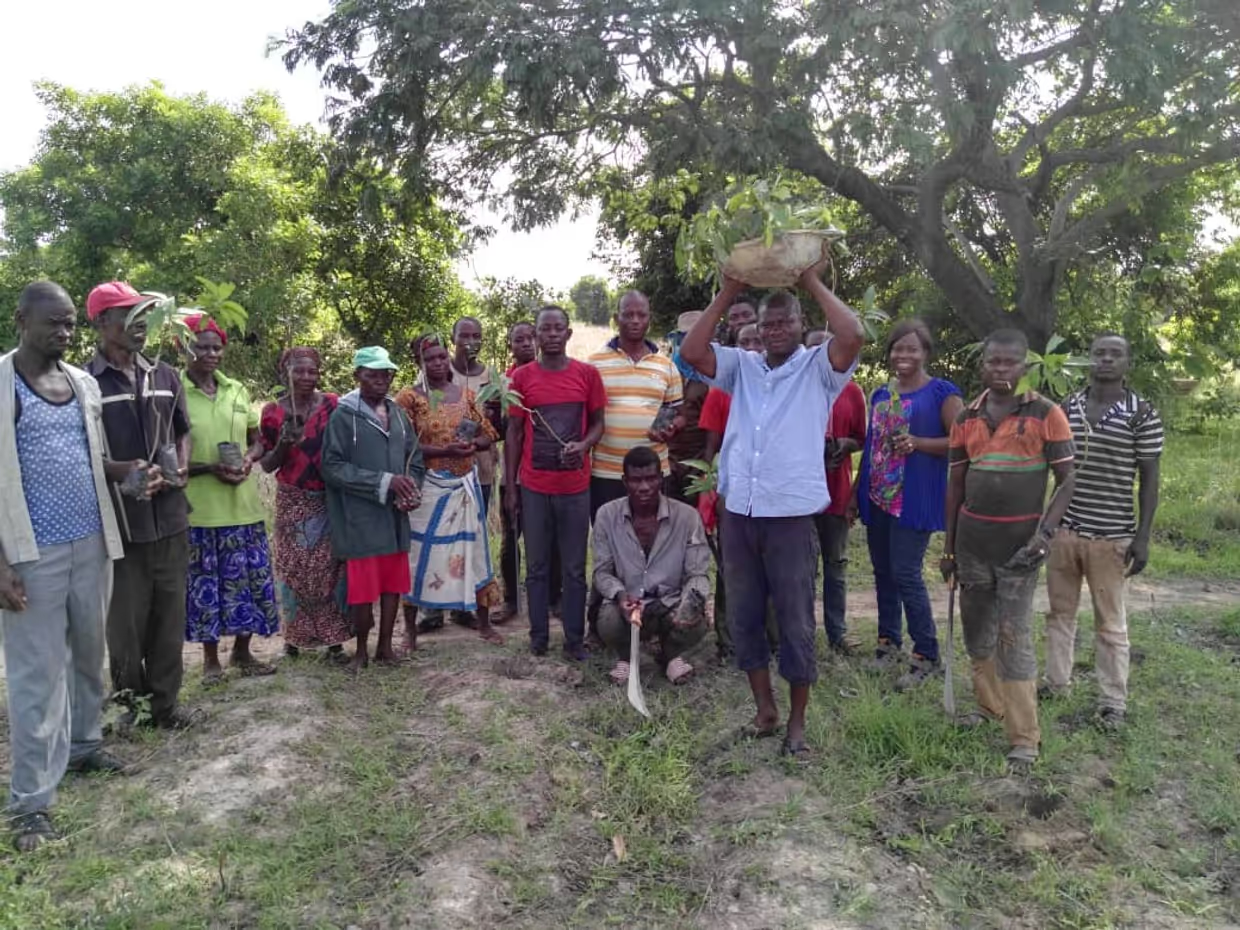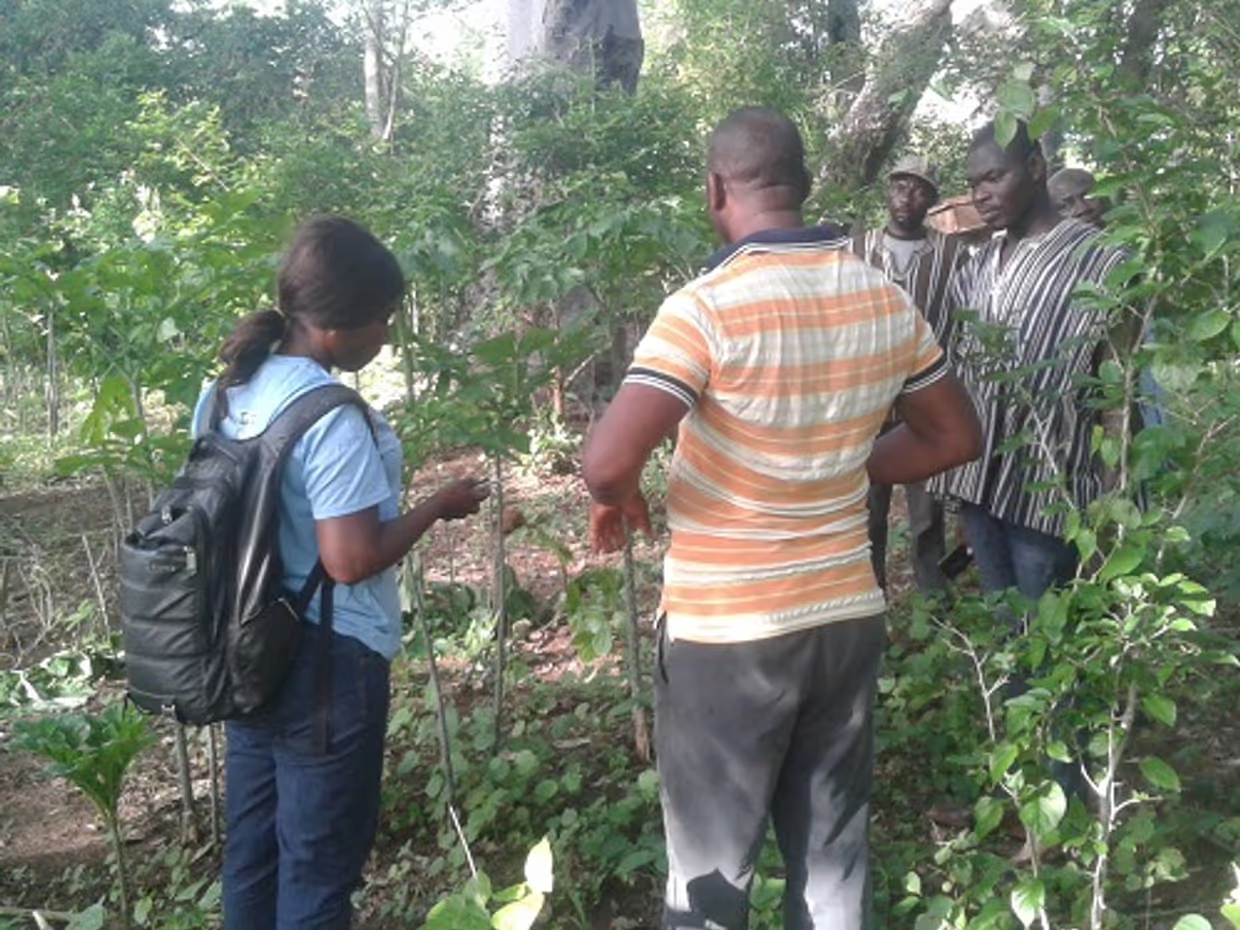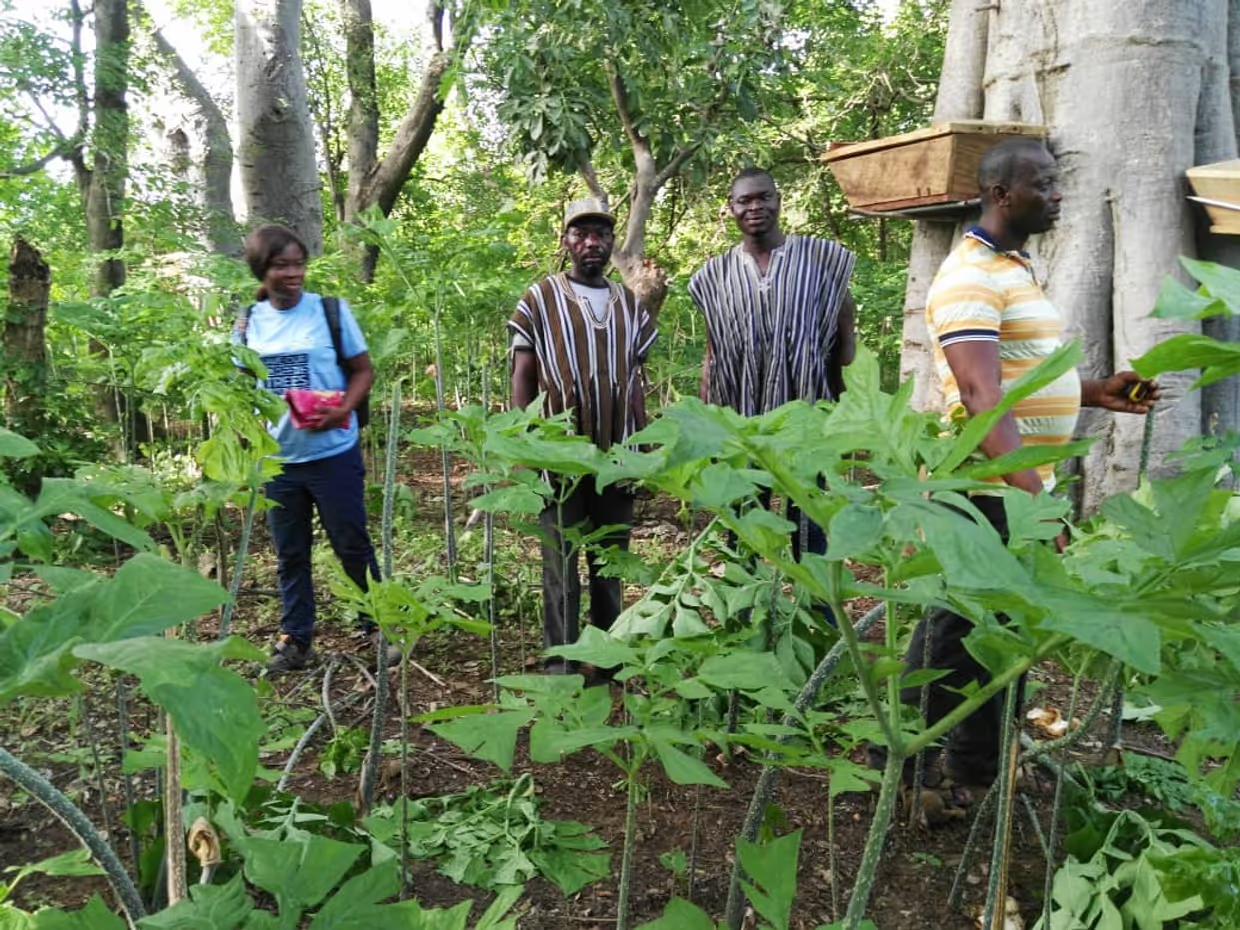ITC alumnus, Emma Baah Agyapong (40), fights the consequences of climate change in Ghana as co-founder of the Environment & Agroforestry Foundation (EAF). ‘My dream is to expand our foundation to countries outside Ghana, while climate change does not stop at the border.’
This article is originally published in the new U-Today Special 'Global Impact'. Text by Jelle Posthuma and photos by Emma Baah Agypong.
The Environment & Agroforestry Foundation (EAF) is a non-profit organisation that has been working to conserve biodiversity in Ghana and to achieve the Sustainable Development Goals of the United Nations since 2017. 'Our vision is to manage Ghana's natural resources, environment, and agriculture to produce long-term socio-economic and ecological benefits,' says Agyapong. ‘We work in three regions and we do this together with local communities, because they directly deal with natural resources and influence their own environment.’
According to Agyapong, the majority of decisions concerning the climate and environment in Ghana are taken at a central level. ‘The local population is often ignored. We want to bridge this gap. Local communities often do not know what is going on with regard to climate change and the measures taken by the government. We educate them and offer technical and financial support, through local, national and international subsidies. Together with the local population, we want to identify their problems and look for solutions, so they feel part of the projects.’
In this way, Agyapong hopes to protect the local communities in Ghana from the effects of climate change. ‘My dream is to expand our foundation to countries outside Ghana, such as the Ivory Coast and Burkina Faso. Climate change does not stop at the border of course; it is an international crisis. We must fight it together.’
‘You have to be really serious'
From 2015 to 2017, Agyapong studied at the ITC faculty of the University of Twente. 'After my bachelor's at Kwame Nkrumah University in Ghana, I wanted to do a master's to expand my knowledge even further. I always look for the cause of problems, that is my motivation to study. An ITC alumna from Ghana encouraged me to apply for the ITC faculty in Enschede. I was accepted and a Nuffic scholarship (the Dutch organisation for internationalisation in education, ed.) made it financially possible.’
She learned a lot from her time at the ITC faculty, Agyapong says. ‘Besides the knowledge regarding Remote Sensing, which I still use on a daily basis in my current work, I learned a lot about teamwork. Within the ITC faculty, there is a lot of teamwork with people from very different cultural backgrounds. We also did things together as students in the ITC hotel, like cooking. In that way I got to know many different cultures as well.’
But her start in Enschede was not easy, she tells. ‘The study is pretty tough. In Ghana, we learn in a different way. The workload in the Netherlands is a lot higher and that demands time management. I had to learn to work at maximum speed to meet my deadlines,’ Agyapong laughs. That is why she has a tip for future ITC students. ‘You have to be really serious. They mean business at ITC. But, at the same time, the lecturers are very down-to-earth and welcoming. The door to their office is always open. If you really want to learn, it is a great place to study.’









